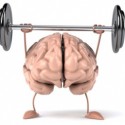How do some of us resist the temptation to overeat palatable (pleasurable) food, get through the last exhausting mile in a marathon, and force ourselves to make tough decisions when it would be easier to give in, stop and/or walk away respectively?
Is will power or self-control just a learned (habitual) skill or could it relate to the number and strength of our internal or external incentives/motivators? After all we know when we are motivated we are more likely to keep going even when the going gets tough.
Those of us who think we have little or no will power may be surprised by the research which shows that the average person spends 3 to 4 hours a day resisting desires. Self-control isn’t just about saying no to temptation. It also includes controlling thoughts and emotions, performing tasks well or making decisions.
The bottom line is that being able to practice self-control is a choice which gives us the choice particularly when it involves unhealthy habitual behaviour or giving in to temptation easily or prematurely. This skill is important to being successful in any aspect of life, forming healthy relationships and maintaining our mental and physical well-being.
Being able to regulate our impulses and desires can become a habit just like any other; the more we practice the thoughts and behavioural routines associated with self-control the stronger it becomes. And just like a muscle we can choose to flex it – or not.
However exercising willpower takes effort and for many of us this is a limited resource. In other words demonstrating self-control or making tough decisions is physically tiring, or conversely, being tired can impair our willpower and our ability to make decisions.
We know that after ‘a hard day at the office’ many of us eventually succumb to temptation perhaps by overdoing our alcohol intake or breaking the diet we had firmly ‘resolved’ to follow.
Although the brain comprises only about 2% of the body’s weight, it uses up to 20% of its energy requirements. An important source of this energy is blood glucose. Exerting self-control can use up the brain’s blood glucose. Whilst replacing it can sometimes temporarily give us a boost of energy, this doesn’t fully explain how some people can sustain self-control even when under extreme or prolonged physical or mental pressure.
In contrast when addiction and craving have developed there are those who contend that will-power and ‘choice’ disappear so that quitting is not only difficult but complicated. Because this reinforces the belief that the loss of self-control is due to the substance, a belief often shared between the addict and potential helpers, this expectation becomes self-fulfilling.
Roy Baumeister[1], a social psychologist at Florida State University, has challenged the assumption that craving for substances such as drugs, alcohol and nicotine (and you could also add palatable food), takes over an addicts life because they become preoccupied with satisfying their needs.
Baumeister points out that the brain changes which occur in addiction do not actually affect the areas essential for self-control. The Prefrontal Motor Cortex, the area responsible for the action or behaviour, is still functionally intact.
Indeed staying addicted requires a number of strategies, often carried out despite significant obstacles, which not only requires effort but also significant willpower! In other words the addict’s ability to consistently plan and execute strategies to maintain their habit is an example of ‘willfulness’.
So if an addict potentially still has control the question is how their choice of action be redirected, albeit accompanied by the same effort and belief, to a new and healthier focus. We shall see as we develop the H4H process what we choose to focus on can significantly affect our everyday lives.
In addition, and contrary to popular belief, giving in to an urge is not usually because the strength of the urge itself is overwhelming or that it builds up exponentially in relation to the time without a ‘fix’. It is more likely to occur in response to a relatively minor urge, or series of urges, coupled with willpower being at a low ebb.
How can those of us who are ‘weak-willed’ strengthen our resolve in the face of everyday challenges and temptations? With ‘smart practice’. This involves deliberate top-down practice with frequent adjustment using trial and error. It is less about the duration or amount of practice and more about the quality of practice with a feedback loop built in.
We will also show you how smart practice and the If-Then strategy can help change our mindsets and behaviour and help with motivation and focus.
NEXT: H4H. If you want to change a habit-Then learn the If-Then process.
[1] In ‘Conquer yourself, Conquer the world’ Scientific American April 2015


Sorry, comments are closed for this post.